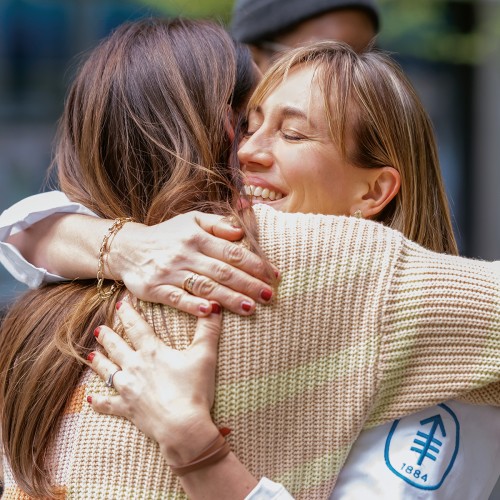
Thanks to an experimental drug, Giovanna Whitting’s aggressive thyroid cancer has disappeared.
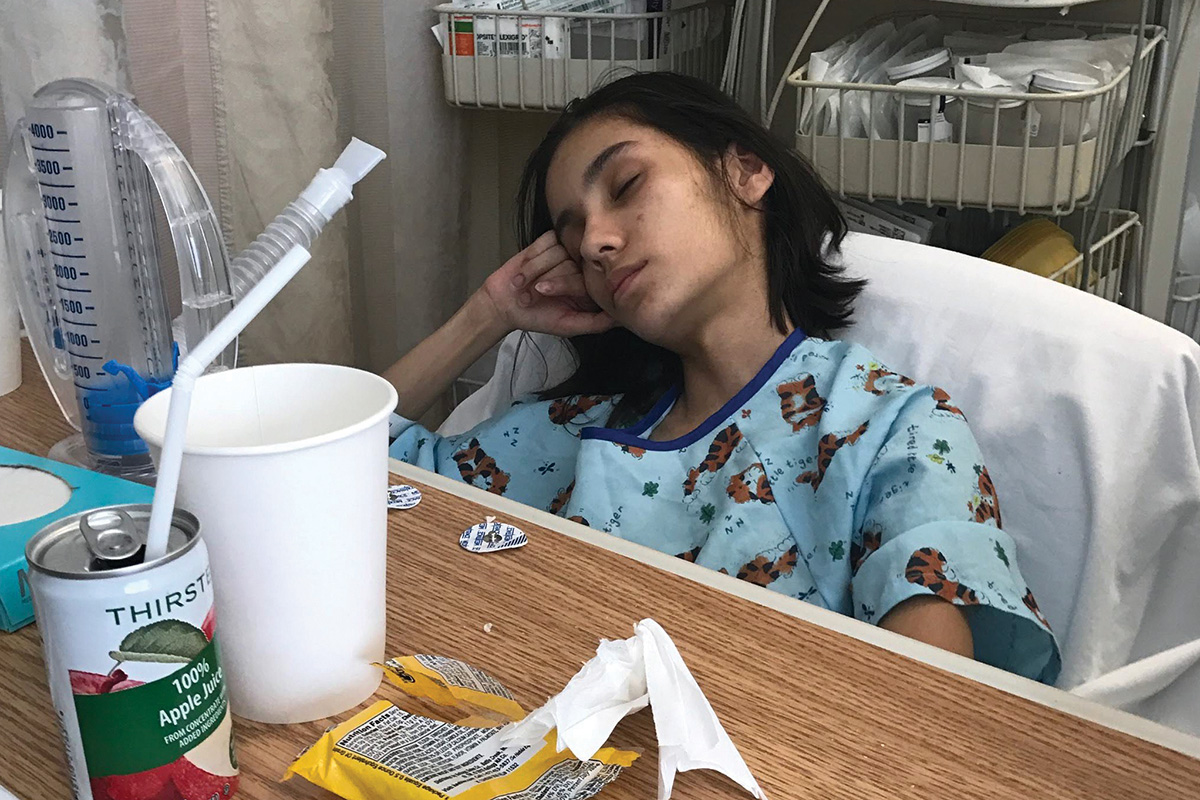
Giovanna at MSK in 2016. Before enrolling in a clinical trial, she was running out of treatment options.
Their first meeting was unforgettable. Giovanna Whitting was 16 years old but looked much younger, says Memorial Sloan Kettering Cancer Center (MSK) medical oncologist Alexander Drilon. “She was severely underweight,” he remembers. “There was talk about giving her a feeding tube.” Giovanna had metastatic thyroid cancer. Standard treatments were not working.
“I was literally dying in my hospital bed,” Giovanna says of that day in 2018. “Then Dr. Drilon comes in out of nowhere with a treatment for me. I don’t know where I’d be if it weren’t for him.”
Today, Giovanna is a 20-year-old college student studying writing and digital media at Pennsylvania State University. She has a boyfriend and a tightknit group of friends. “When people look at me, they can’t tell that I was ever sick,” she says.
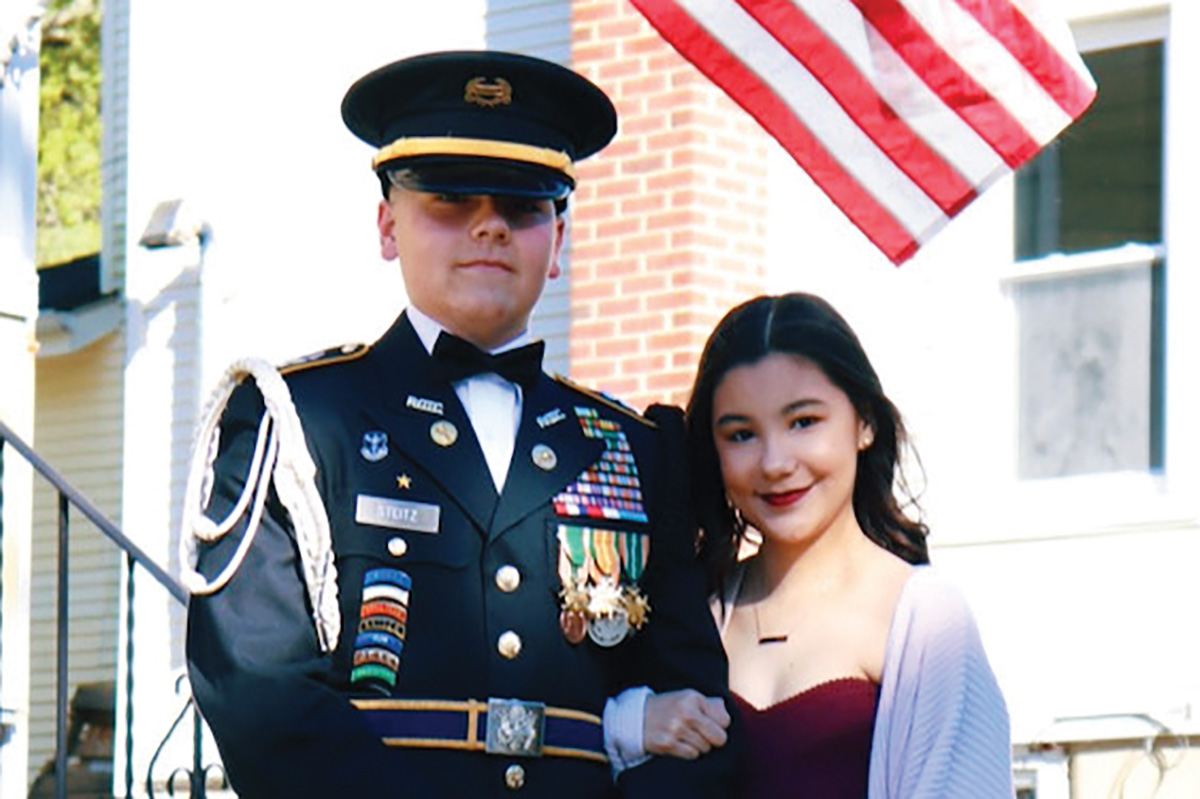
Giovanna in 2019 at a military ball with Anthony Steitz, her best friend from childhood. “Without him, I wouldn’t be where I am today,” she says.
Giovanna’s amazing turnaround is due in part to an innovative database developed at MSK, called OncoKB®. It matches patients whose cancer is driven by rare mutations with the targeted therapy that may work based on the patient’s tumor molecular profile.
In October 2021, OncoKB became the first such database to be partially recognized by the U.S. Food and Drug Administration (FDA). This distinction means that OncoKB is considered a scientifically valid reference tool that documents the tumor-type specific therapeutic implications of cancer mutations.
OncoKB is the result of years of collaboration overseen by MSK molecular geneticist Debyani Chakravarty, the lead scientist for OncoKB; Nikolaus Schultz (Geoffrey Beene Junior Faculty Chair), head of Knowledge Systems in MSK’s Marie-Josée and Henry R. Kravis Center for Molecular Oncology (CMO); and MSK computational oncologist JianJiong “JJ” Gao.
A Tsunami of Genetic Information To Interpret
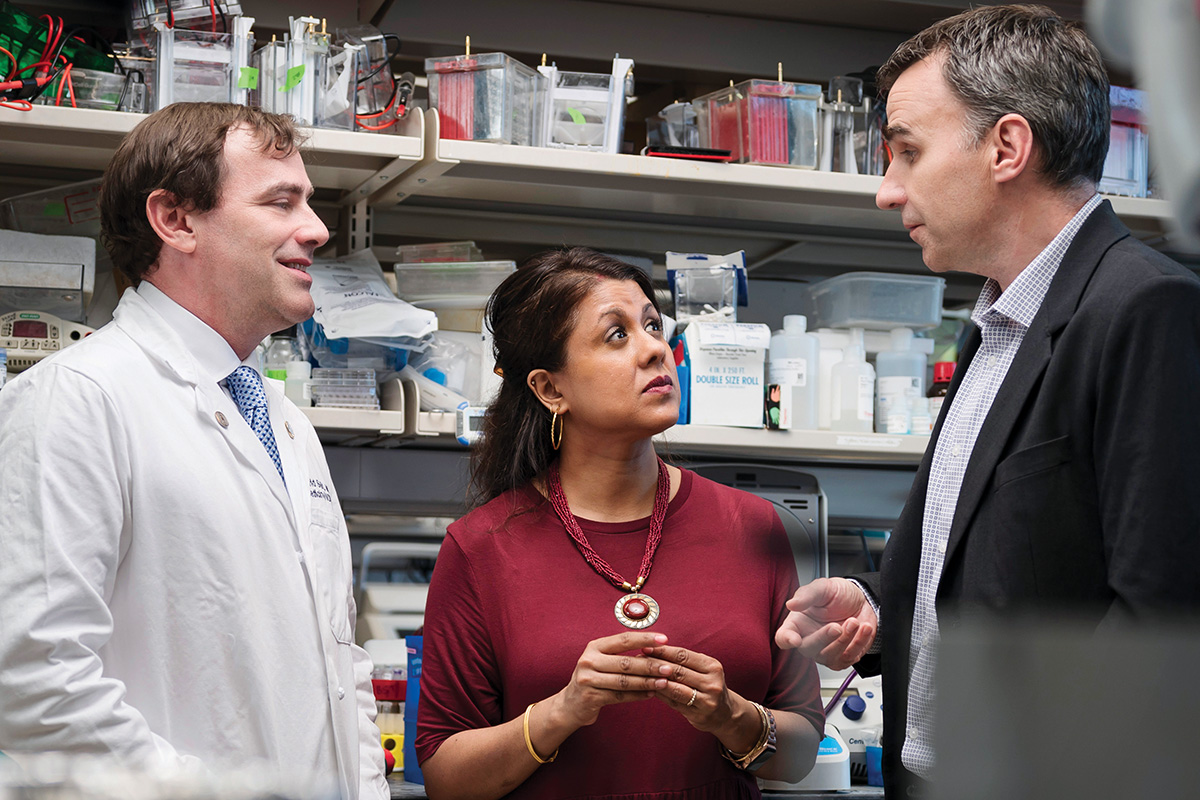
(From left) David Solit, MD; Debyani Chakravarty, PhD; and Nikolaus Schultz, PhD, collaborated on the development of OncoKB.
Nearly two decades ago, when doctors began performing the first tests to analyze genetic patterns for a few types of cancer, interpreting the results was straightforward. A handful of familiar mutations indicated that people with certain cancers may respond to drugs targeting those mutations.
With the advent of more advanced DNA sequencing technologies analyzing hundreds of cancer-associated genes or even the whole genome, there’s been exponential growth in the number of potentially targetable mutations that can be detected. There also has been an explosion in the number of targeted drugs available to treat cancers of all types.
Confronting mind-boggling amounts of data, doctors and scientists at MSK understood that they needed a better way to keep track of the mutations and possible drugs for different kinds of cancer. They developed this searchable database and named it OncoKB. (The “KB” stands for “knowledge base.”)
“There are so many cancer-causing mutations that no one can memorize all of them,” says physician-scientist David Solit (Geoffrey Beene Chair), Director of the CMO, which maintains the database. “We created OncoKB as a tool to help doctors understand which mutations in a particular gene are important and may predict for sensitivity or resistance to a particular drug.”
Matching Patients With Targeted Drugs
Giovanna was first diagnosed with medullary thyroid cancer, an aggressive disease, when she was 8 years old. MSK pediatric surgeon Michael La Quaglia (Joseph H. Burchenal Chair in Pediatrics) removed part of her tumor, which relieved the pressure on her windpipe that was making it difficult to swallow. For years, her cancer remained under control, but it eventually returned. In May 2018, a scan revealed that it had spread to one of her lungs.
Giovanna’s cancer was analyzed with MSK-IMPACT®, a test that looks for mutations in more than 500 cancer-associated genes in tumor samples. The test detected a mutation in a gene called RET.
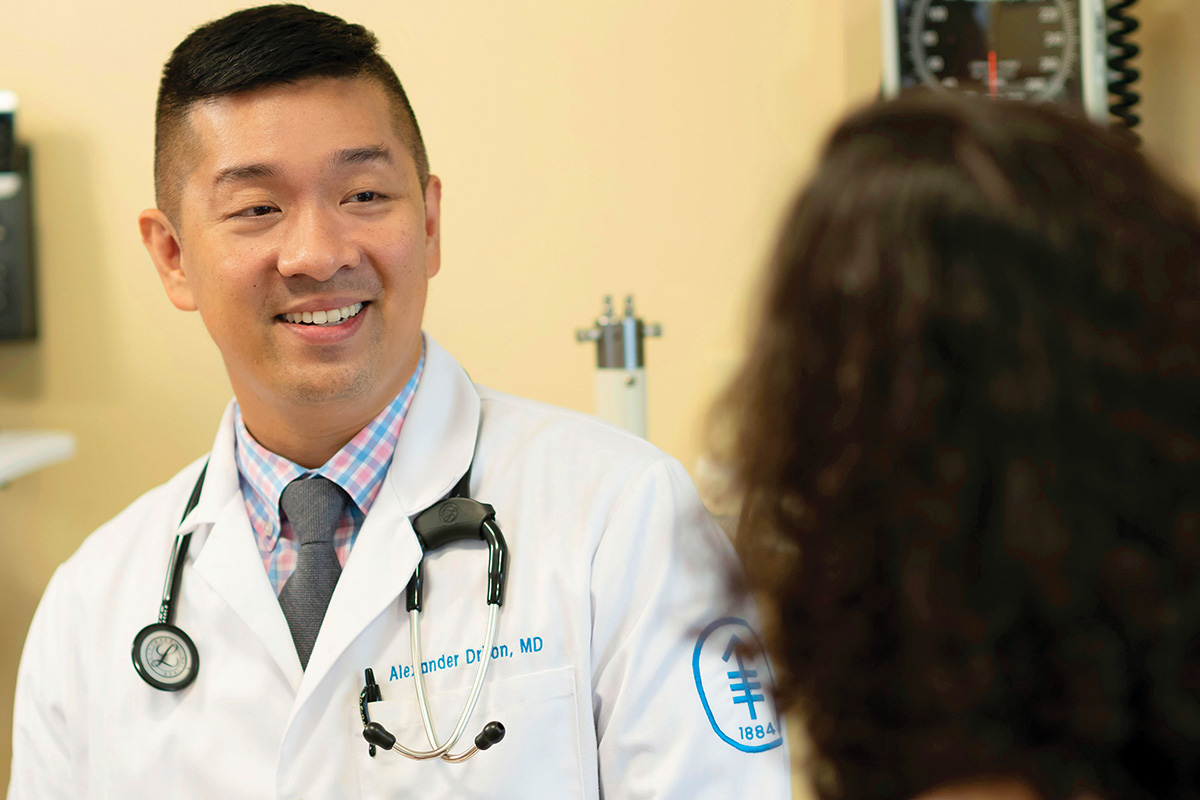
Alexander Drilon, MD, Chief, Early Drug Development Service
“Based on results that OncoKB revealed about the RET mutation, she was then referred to us,” says Dr. Drilon, who is Chief of the Early Drug Development Service at MSK. “Because she had the RET mutation associated with response to RET inhibition, we were able to enroll her in a clinical trial of a selective RET inhibitor, selpercatinib, a drug that was investigational at the time.” (In May 2020, selpercatinib, now also known as Retevmo™, received FDA approval for treating lung and thyroid cancers caused by RET mutations.)
After Giovanna started taking the drug, she felt better almost immediately. “When I was really sick, I had a routine every morning that broke my mom’s heart. I would wake up and cough until I threw up,” Giovanna says. “I still remember waking up in a hotel room near MSK just a day or two after I started taking the pills. I was getting ready to start my cough, and then I realized it was gone.” Since those early days in the trial, Giovanna’s scans continue to show no signs of cancer. She still takes selpercatinib every day.
“Giovanna looks like a completely different person from when I met her,” Dr. Drilon says. “None of this would have been possible without OncoKB.”
Finding the ‘Driver’ Mutations
One reason it’s so hard to match mutations with drugs is that most tumors contain dozens of mutations. The challenge is determining which mutations are the “drivers” — that is, which mutations control the cancer’s development or spread. Most mutations are “passengers” that play no significant role in tumor growth.
“Once the drivers are identified, the next step is to determine which of them are clinically actionable — which means they can be potentially targeted with drugs,” Dr. Chakravarty explains. “OncoKB was designed to make these tasks significantly easier.”
The goal now is to disseminate the knowledge from this massive and constantly updated database across the country, far beyond MSK. Since December 2019, other hospitals have been able to license OncoKB to help their patients, even if their diagnostic genetic test was not MSK-IMPACT. “We hope that the FDA’s recognition of OncoKB will help raise awareness of this valuable resource not only at referral cancer centers but also among doctors caring for patients in the community,” Dr. Chakravarty says. “The goal is that many more clinicians will have access to the knowledge stored within OncoKB so that many more patients can ultimately benefit from precision oncology approaches.”
Giovanna wants to spread her story too. After college, she plans to become a magazine writer. “I want to use my writing to inspire other people,” she says. “When it comes to pediatric cancer, we don’t talk about our stories nearly enough. I think by showing my perspective and how I’ve coped, I can help other teens going through this to know they’re not alone.”
